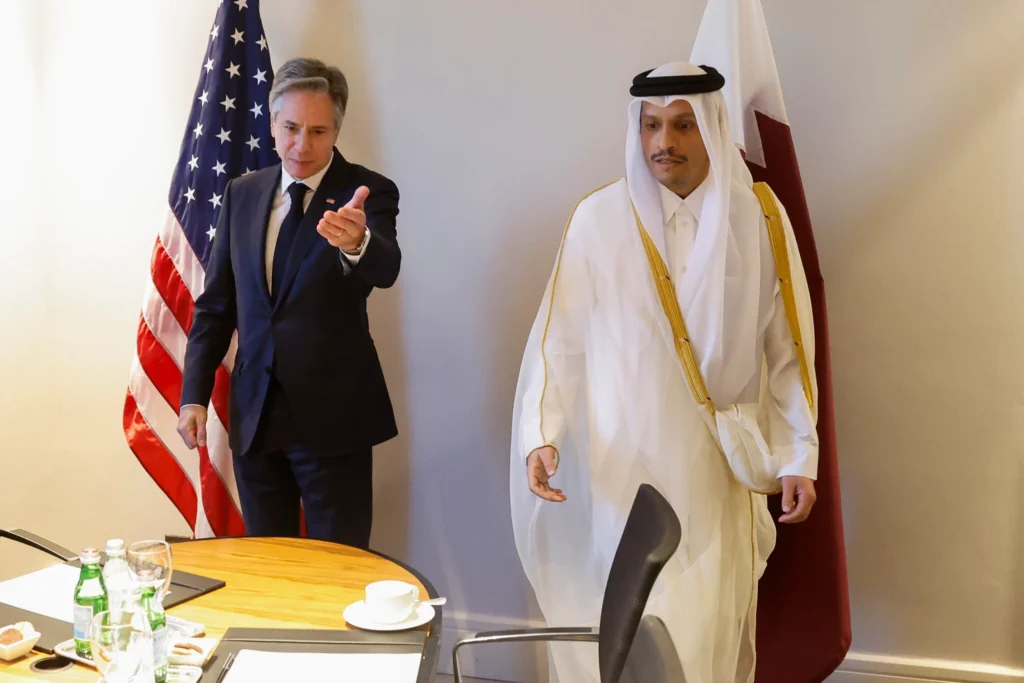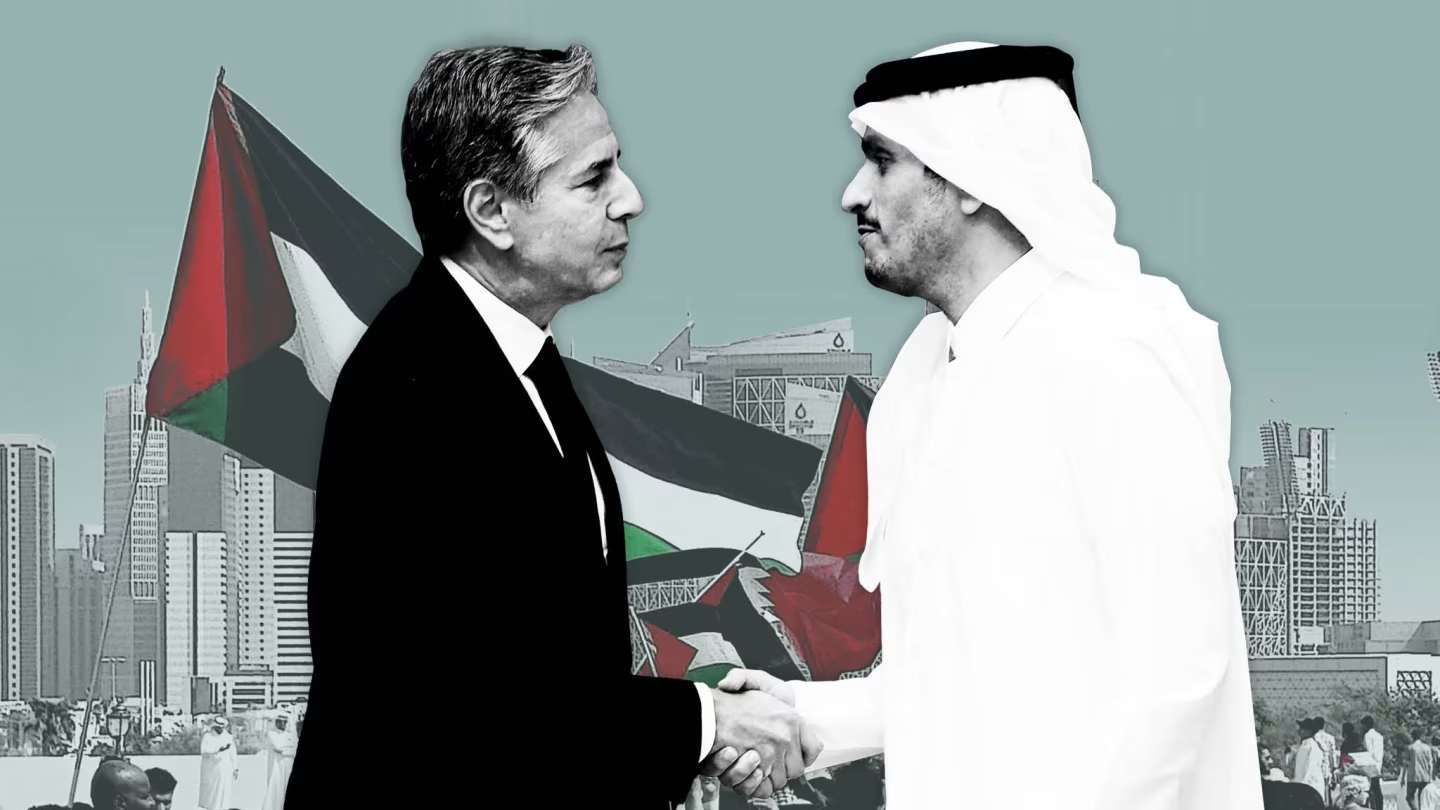In a stunning development that could reshape Middle East diplomacy, sources say Qatar played a key role in securing better terms for the Hamas Hostage during sensitive Gaza hostage negotiations. This move reportedly helped Hamas toughen its demands, eventually sabotaging a crucial deal that many believed could have ended months of deadly conflict.
Behind the scenes, Qatar — long a mediator in regional conflicts — appears to have walked a delicate line between facilitating talks and quietly backing Hamas’ negotiation tactics, insiders familiar with the matter say. Their actions are now under heavy scrutiny, especially from the United States, as frustrations mount over the breakdown of the agreement.
Qatar’s Delicate Balancing Act
Qatar has always maintained it plays a neutral role by hosting Hamas political leaders in Doha. Officials argue that providing a safe space for dialogue has been critical in keeping lines of communication open between Hamas and the West.

But sources close to the negotiations claim that during recent meetings, Qatari officials subtly encouraged Hamas to stand firm on key demands — including the release of more Palestinian prisoners, a permanent ceasefire, and expanded humanitarian access to Gaza.
Hamas, emboldened by what it saw as quiet support from Doha, refused several offers that had the potential to secure the release of Israeli hostages. Instead, it held out for better conditions, believing that continued negotiations would eventually sway the deal in its favor.
This hardline stance was a major factor in the collapse of the talks, according to multiple diplomats and officials involved in the process.
U.S. Growing Frustration With Qatar
American officials, once tolerant of Qatar’s complex position, have shown growing impatience. After Hamas rejected what was widely seen as a generous offer, the U.S. privately asked Qatar to expel Hamas leadership from Doha.
“We believe that after sabotaging these talks, Hamas leaders no longer deserve safe haven in the capital of an American partner,” one senior U.S. official said.
The Biden administration reportedly warned that if Qatar failed to act, it could face broader diplomatic consequences. The United States has been careful to maintain its relationship with Qatar, given its role in hosting the Al Udeid Air Base and acting as a key regional partner, but patience is wearing thin.
Despite the pressure, Qatar’s Prime Minister Sheikh Mohammed bin Abdulrahman Al Thani defended his country’s actions. He argued that Qatar’s main aim has always been to help broker peace and that kicking Hamas out would only make future negotiations harder.
Breakdown of the Gaza Hostage Deal
The hostage negotiations were seen as a rare glimmer of hope amid months of brutal warfare. The proposed deal called for a phased ceasefire, the release of dozens of Israeli hostages, and a swap involving Palestinian prisoners, many of whom are serving lengthy sentences.
At various points, mediators from Egypt, Qatar, and the U.S. believed they were close to a breakthrough. However, every time progress seemed within reach, new demands emerged, mainly from the Hamas side.
Hamas insisted not only on the release of more prisoners but also pushed for a complete and permanent end to Israeli military operations in Gaza — a demand that Israel was unwilling to meet. Israeli negotiators accused Hamas of deliberately moving the goalposts, while Hamas blamed Israel for last-minute changes to the terms.
In reality, sources say, both sides contributed to the collapse. Yet the perception that Qatar enabled Hamas to resist compromise has caused serious diplomatic ripples across the region.
Qatar’s Complicated Role
This is not the first time Qatar’s relationship with Hamas has raised eyebrows. The Gulf state has provided hundreds of millions of dollars in humanitarian aid to Gaza over the years, often working through United Nations channels. Critics argue that some of that money has indirectly benefited Hamas, while supporters insist it helped prevent a total humanitarian collapse in the blockaded territory.
Now, the question being asked in Washington and Tel Aviv is whether Qatar’s influence on Hamas has become more of a problem than a solution.
Middle East analysts say Qatar faces a tough choice: continue playing the mediator and risk alienating key Western allies, or distance itself from Hamas and risk losing its role as a critical go-between in one of the world’s most complex conflicts.
What Happens Next?
The failure of the hostage deal has immediate and grim consequences. Fighting in Gaza has intensified once again, with Israeli forces ramping up military operations and Hamas vowing to resist. The humanitarian situation, already catastrophic, is rapidly deteriorating, with food, water, and medical supplies running dangerously low.
Meanwhile, the diplomatic fallout is just beginning. Discussions are underway among U.S. and European officials about potentially rethinking Qatar’s role in future negotiations. Some are calling for a broader review of how peace talks are conducted in the region, with an emphasis on ensuring that mediators truly remain neutral.
Despite the tension, Qatar still holds important cards. Its access to Hamas, its influence over regional actors, and its economic leverage give it a major voice in shaping any future peace efforts.
However, if Qatar wants to retain its reputation as a trusted mediator, it may soon have to make tough decisions about its relationship with Hamas — and whether helping the group secure better terms was worth the diplomatic cost.
Conclusion
The collapse of the Gaza hostage deal highlights the deep challenges in brokering peace between Israel and Hamas. Qatar’s role, once seen as a bridge between bitter enemies, is now under harsh spotlight. Whether it can regain the trust of all parties remains uncertain, but one thing is clear: in the world of Middle East diplomacy, even well-meaning efforts can have unintended and far-reaching consequences.
M23 Rebels Agree to Ceasefire in Eastern Congo Amid Peace Talks



